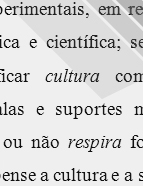

................................
In the field of popular culture, by demanding the ontogeny of the romantic programme established by Garrett and Herculano, Teófilo contributed to the catalogue of sources, sometimes imaginatively (Romanceiro geral coligido da tradição [General collection of ballads compiled from tradition] , 1867; História da Poesia Popular Portuguesa [History of Portuguese Popular Poetry], 1867: As origens [The origins], 1902; Ciclos Épicos [Epic Cycles], 1905; Cancioneiro Popular [Popular Songbook], 1867; Contos tradicionais do povo português [Traditional tales of the Portuguese people] 1883; O Povo Português nos seus costumes, crenças e tradições [The Portuguese people in their customs, beliefs and traditions], 1885, 2 vols.; Romanceiro Geral Português [Portuguese General Collection of Ballads] 1906), a field explored by Adolfo Coelho and Consiglieri Pedroso. Highlights include biobibliographies: Camões (1873; 1880; 1880 bis, 1894; 1917), Camilo Castelo Branco (1916), O Judeu [The Jew] (António José); and poetic collections (Camões, Bocage, João de Deus). In the History of Theatre area, emphasising popular manifestations, he published materials and syntheses.
It may be said, in the episteme of historiographical practice, that his work is overdetermined by narrow positivism and conditioned by the political agenda of republican proselytism, which detract from its analytical rigour and dispassionate understanding of the issues under debate. With inherent and unilateral parallaxes of the programme and flaws in the writ conferring it apparent solidity, ultimately weakening it in the epistemological instance, Teófilo's work is a reference in the transition from the 19th to the 20th century in cultural history, whether through the "institutional" or literary incursions, which he attempted to move to the level of the grand explanatory syntheses. But while they satisfied and opened evident didactic purposes, on the other hand, they closed themselves in a dogmatic summary.
